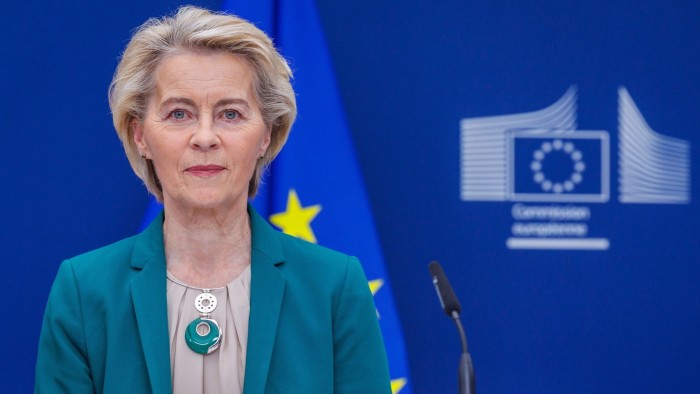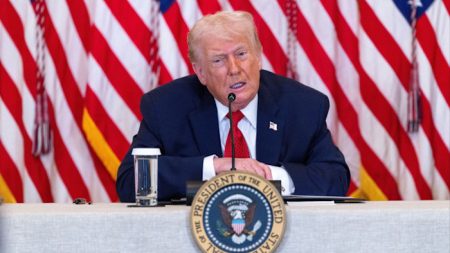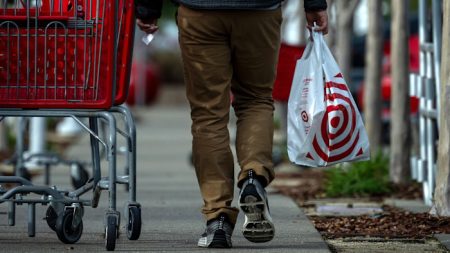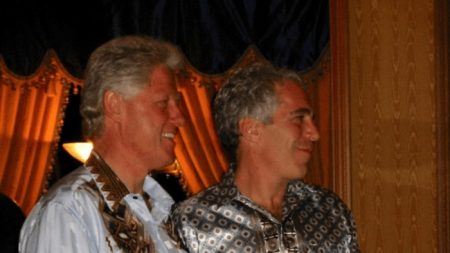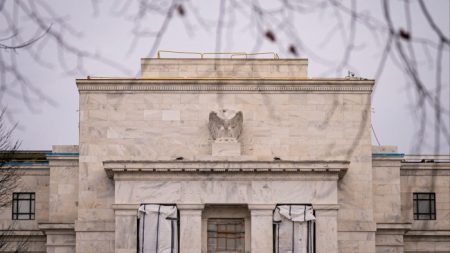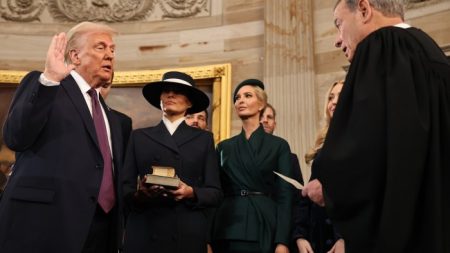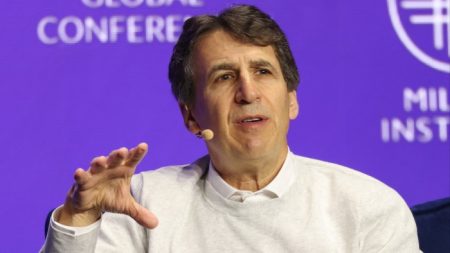Unlock the Editor’s Digest for free
Roula Khalaf, Editor of the FT, selects her favourite stories in this weekly newsletter.
The EU will delay its plan to hit the US with tariffs on €21bn of its annual exports to Europe on Tuesday in the hope of coming to an agreement after Donald Trump announced that he would hit the bloc with 30 per cent tariffs from August 1.
European Commission president Ursula von der Leyen said on Sunday that the application of tariffs to €21bn of annual US exports to the EU, including chicken, motorcycles and clothes, that were due to come into effect after midnight on July 14 would be suspended until “early August”.
“We have always been clear that we prefer a negotiated solution with the US. This remains the case,” she said.
Donald Trump announced on Saturday that he would hit the EU and Mexico, two of the US’s closest trading partners, with 30 per cent tariffs from August 1.
European leaders have been split on whether the bloc should press for a quick framework trade deal similar to the UK’s or keep negotiating in the hope of achieving a better outcome.
Senior EU officials told the FT that they did not expect Trump to ultimately go through with his new threat of 30 per cent tariffs, which is being widely interpreted by Brussels as a bid by the US President to increase pressure on the bloc in the remaining time left for negotiations.
One EU official pointed to the likelihood of a very negative US investor reaction to such steep measures on a key trading partner.
“We trust in the markets,” the official said.
German finance minister Lars Klingbeil called for the EU to continue “serious” talks. “Nobody needs new threats or provocations right now. What we need is for the EU to continue serious and targeted negotiations with the US,” he told Süddeutsche Zeitung.
However Klingbeil warned that “if a fair negotiated solution cannot be reached, then we must take decisive countermeasures to protect jobs and companies in Europe.”
As well as the initial list of counter-tariffs, the European Commission, which runs trade policy, is consulting on a package of tariffs on a further €95bn of imports from the US, including aircraft, alcohol and food, which would need member states’ approval. This has already been reduced to €72bn, according to two diplomats, after governments lobbied to remove some sensitive products from the target list.
The US is applying tariffs on around €380bn of annual imports from the EU.
Von der Leyen said that the commission would “continue to prepare” the second list of countermeasures but she said that the bloc would not invoke its anti-coercion instrument, which would allow it to take measures against US service exports, for example by blocking companies from public procurement contracts.
The instrument “is created for extraordinary situations — we are not there yet,” the commission president said, adding that “the time is for negotiations”.
Her comments came as she announced a “political agreement” on a free trade deal with Indonesia after nine years of talks.
The deal, expected to be finalised in September, will need to be ratified by a weighted majority of member states and by the European parliament. Officials are confident it will pass as Indonesia does not export sensitive agricultural products such as beef.
Bilateral trade in goods between the EU and Indonesia was €27.3bn in 2024, with EU exports worth €9.7bn and EU imports worth €17.5bn.
“I am very happy that in this era of instability and confusion we are setting a right example,” Indonesia President Prabowo Subianto said.
Von der Leyen said that diversifying its trade agreements was a central part of the EU’s strategy to counter Trump’s trade war.
Some business groups and politicians, however, have criticised Von der Leyen’s approach.

Italian deputy prime minister Matteo Salvini, leader of the far-right League party who had enthusiastically rooted for Trump’s re-election, lashed out at Brussels for mishandling the negotiations.
“Trump has no reason to attack our country but once again we are paying the price for a German-led Europe,” said the League in a statement.
Coldiretti, the influential Italian agribusiness association, has also criticised Brussels’s handling of the negotiations, warning that Trump’s threatened 30 per cent tariff rate would be a “deathblow” to Italy’s food exports, and cause an estimated €2.3bn in direct damages to Italian producers.
“If the tariffs were to be confirmed on August 1, we cannot help but note the complete failure of von der Leyen’s policy,” said Ettore Prandini, Coldiretti president.
Additional reporting by Amy Kazmin in Rome, Henry Foy in Brussels and Anne-Sylvaine Chassany in Berlin
Read the full article here




